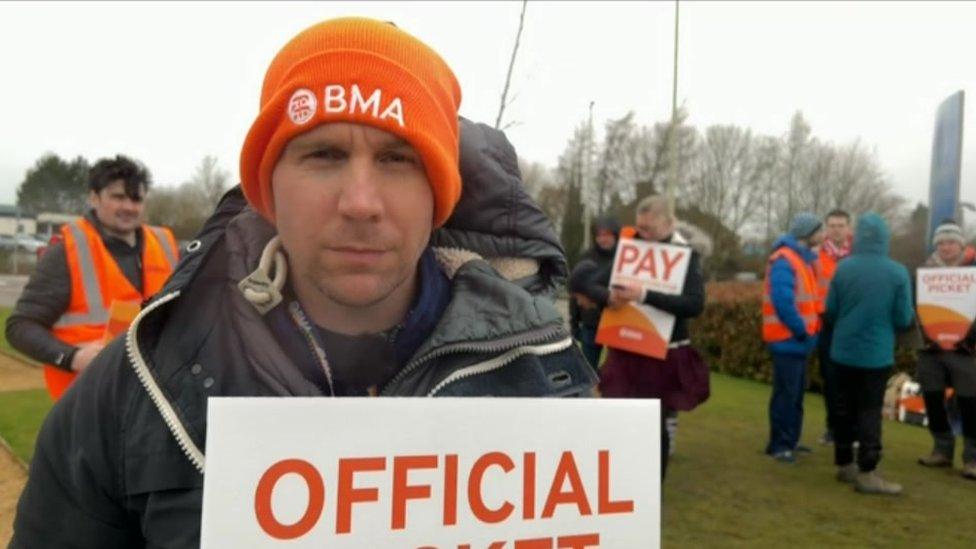West junior doctors striking 'to get pay restored'
- Published
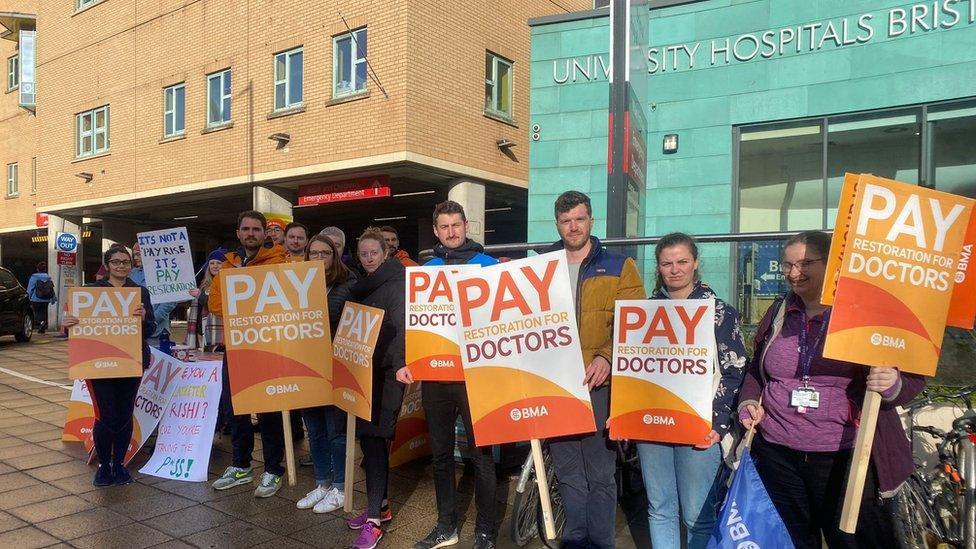
Junior doctors are striking over a four day period asking to be paid fairly and in line with inflation
Junior doctors, who have walked out on strike demanding a 35% pay increase, have accused the health secretary of not taking them seriously.
Samuel Taylor-Smith, a junior doctor and British Medical Association (BMA) rep in Bristol, said he was disappointed by Steve Barclay's response to the strike.
Mr Barclay said the nationwide industrial action "hampers serious talks over pay".
The action is due to last four days.
Dr Taylor-Smith, 27, led a group of around 30 junior doctors outside Southmead Hospital, criticising Mr Barclay in a chant, saying: "There was a man named Steve, he cause the doctors a lot of grief, he refused our meeting, then took to late night tweeting."
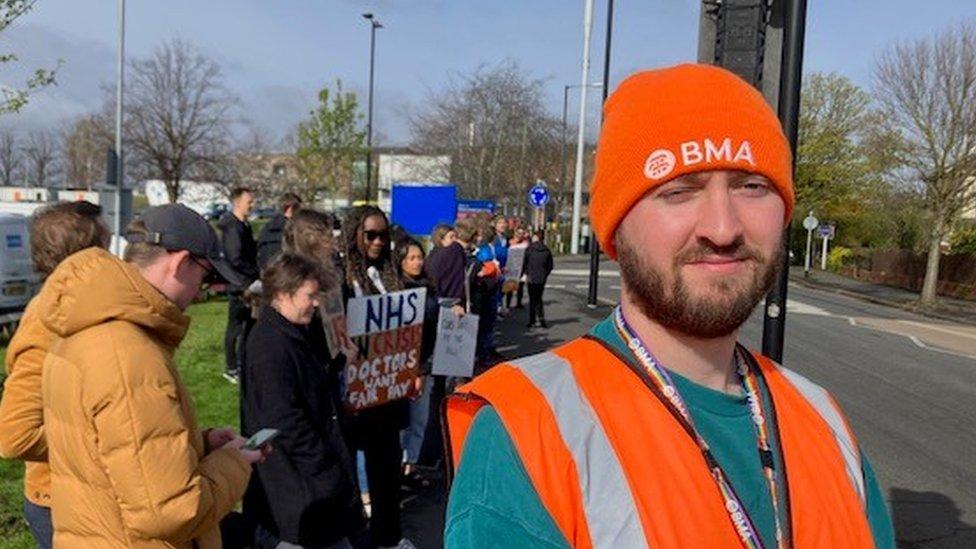
Dr Sam Taylor-Smith said if the current action was successful it will help future waiting times by securing the right number of staff
Dr Taylor-Smith said they wrote to Mr Barclay on 31 March "asking for a reopening of negotiations and asking him to take us seriously and offer us a serious pay offer".
"He waited five or six days to respond to that letter, so that doesn't strike me as a man who is concerned about averting a strike at all possible costs," he said.
Dr Taylor-Smith said they had told Mr Barclay that if he gave them something they would call off the strikes for the rest of the four days, "but it doesn't look like he wants to do that".
The government says the 35% increase is "unreasonable" - and has refused to enter talks with the doctors until the demand is abandoned and junior doctors call off the strikes.
A Downing Street spokesman said: "It continues to be the case that we call on the BMA junior doctors to cease their strikes and revise their starting point for negotiations, which is 35%, which we continue to believe is unreasonable and is not affordable for the British taxpayer."
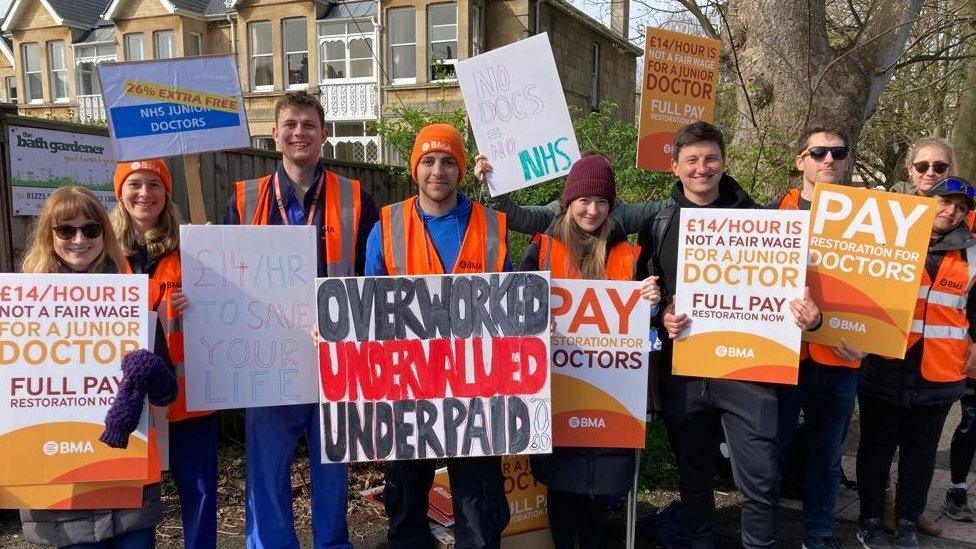
NHS trusts have warned over the four days of action, thousands of operations will be cancelled
Nima Maleki, 28, an emergency medicine trainee at Southmead, said under-resourcing had left him "ashamed" of the care patients receive at times.
"I'm seeing people not getting the care they should be. Over the winter period I was ashamed of the care that I was giving to patients in A&E.
"But often I was being asked to do the job of two or three junior doctors and it makes it impossible for you to do your best for people."
'Not a pay rise'
He said what junior doctors are asking for was "not a pay rise, we're asking for our pay to be restored back to what it was in 2008 to 2009.
"It's the same job but actually we're working so much harder while being paid in real terms a lot less," he said.
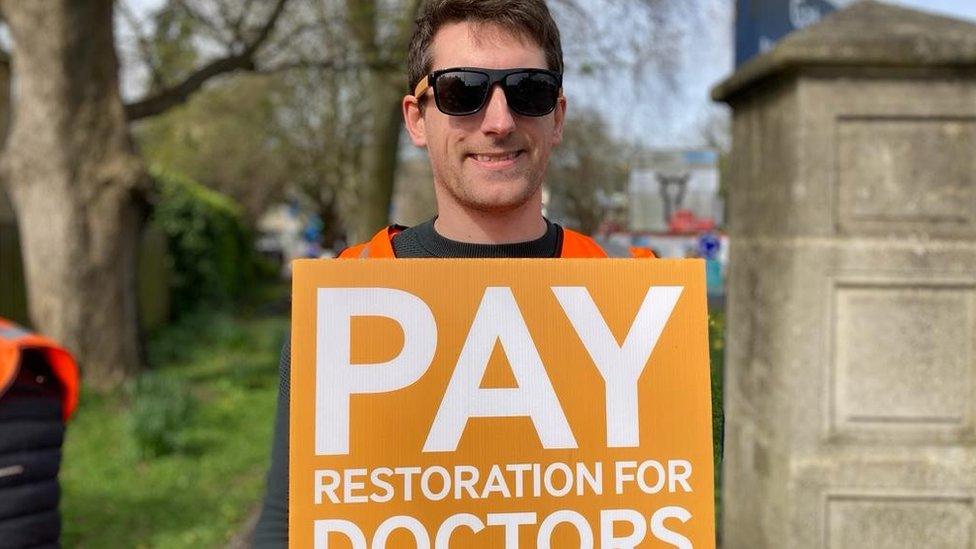
Dr Harry Gething said it was "heart breaking" having to consider leaving the NHS, which he dreamed of working for as a boy
Dr Harry Gething, a junior doctor in his first two years of training in A&E at the RUH, Bath, said up to 80% of his cohort were considering moving abroad or leaving the profession.
"We're losing doctors at an alarming rate to countries where you can get up to double [the pay in England].
"I have a job in new Zealand next year and I'm not sure, if the strikes go badly, whether I'll be coming back."
He said it is "heartbreaking" to feel he may have to leave the job he grew up dreaming of, but said moving elsewhere might be his only option.
"It really would help us feel more valued and a bit more respected and valued in this country if our pay was restored," he said.
Dr Gething said the whole action was "incredibly draining" but junior doctors want to feel "more valued for our time and work… and we're taking more steps to improve pay now".
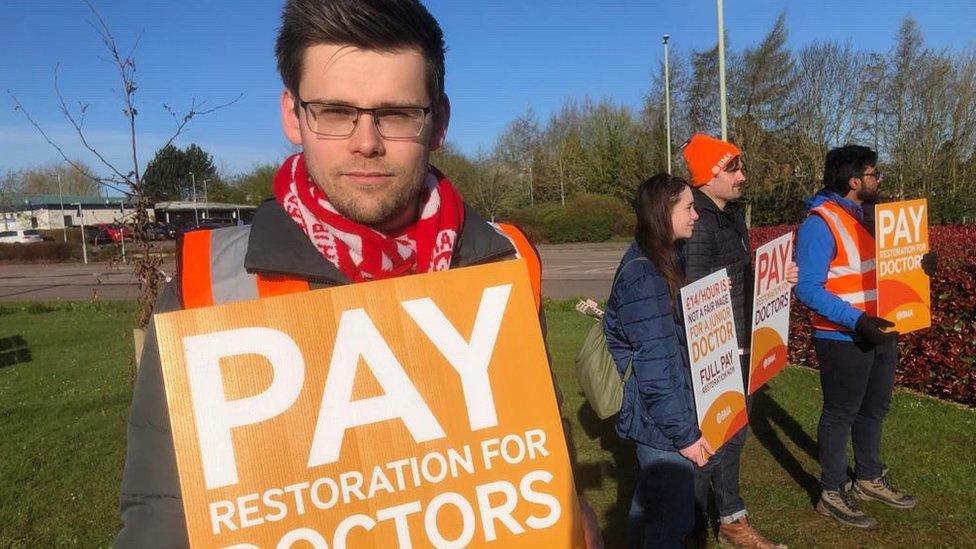
Dr Alexander Tuck said paying junior doctors a "fair wage" will improve staff retention and patient care
Standing on a picket line outside Great Western Hospital, Swindon, Dr Alexander Tuck said "we are just asking for a fair wage for fair work".
Although 35% sounds like a "big figure", it shows "how much our pay has been eroded… and the BMA just wants at least some movement towards rectifying that", he explained.
"Is a doctor worth that much less than they were 10 to 12 years ago?," he asked.
"We would like to negotiate… but we haven't had anything form the government, just a refusal to engage."
Operations cancelled
He said: "I'm seeing we have fewer members of staff on the wards and patients are getting worse and worse service.
"Obviously they're going to have horrendous disruption over the next four days but they've had awful care… over a number of years."
NHS trusts have warned over the four days of action, thousands of operations will be cancelled.
During previous strike action last month, 175,000 appointments and procedures were cancelled in England.

Follow BBC West on Facebook, external, Twitter, external and Instagram, external. Send your story ideas to: bristol@bbc.co.uk
- Published9 April 2023
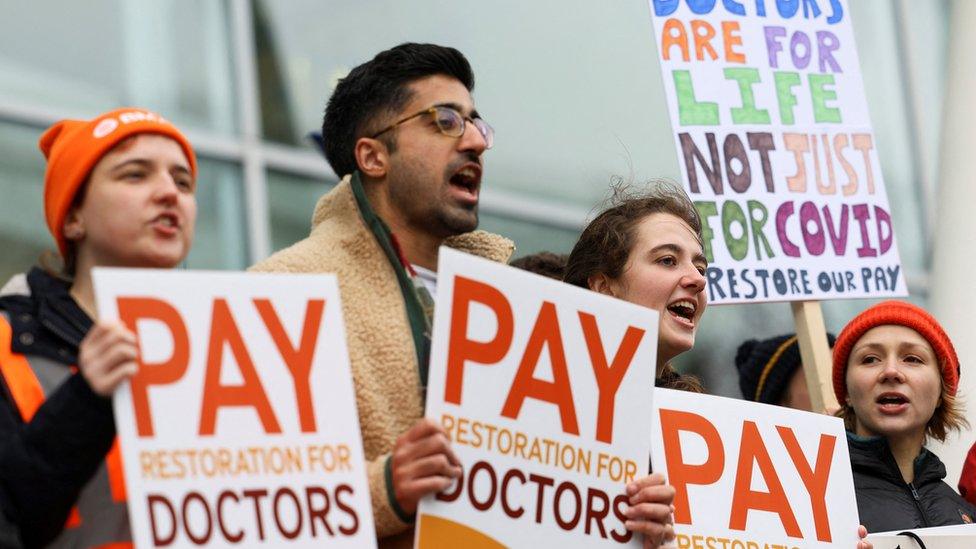
- Published13 March 2023
